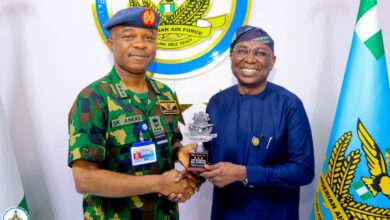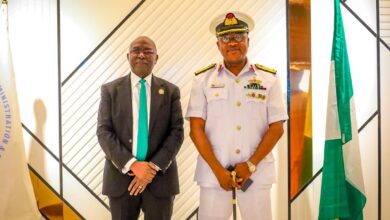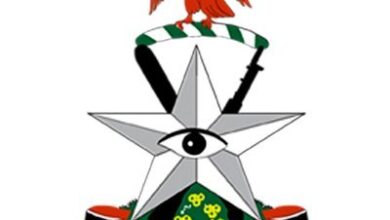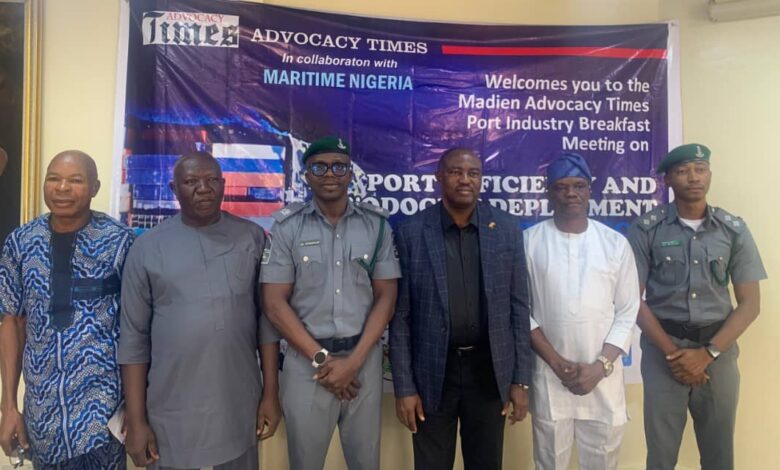
B’Odogwu, the digital platform developed by the Nigeria Customs Service (NCS) is poised to transform port operations across the country, with efficiency levels targeting an impressive 99.99 per cent, barring any event or policy change that could derail its trajectory despite the early success recorded.
With the incorporation of artificial intelligence (AI) for advanced risk analysis, the platform is aligning Nigeria’s Customs processes with international standards, drastically reducing delays and improving cargo clearance time.
Designed to centralise and modernise Customs operations, B’Odogwu enhances transparency, strengthens compliance, and simplifies the management and movement of goods across borders.
Assistant Superintendent of Customs I and B’Odogwu Implementation Officer at the Apapa Area Command, Khalid Salis Hussain during a presentation at the maiden Advocacy Times Port Industry Breakfast Meeting with the theme, “Port Efficiency and B’Odogwu Deployment – Impact and Prospects” on Thursday, August 14, 2025 in Lagos said the platform is aiming for 100 per cent proficiency level and is well on its way to meeting internationally recognised standards.
“In the nearest future, B’Odogwu is going to bring about 100 per cent port efficiency. Even if not 100, let’s just say 99.99 per cent. I am sure of that.
“With the introduction of scanning machines now in place and Artificial Intelligence incorporated into the system for risk analysis, I can emphatically say that the platform will be at par with the standard required internationally”, Hussain, who is part of the team that developed the platform said.
He highlighted that by improving transparency, security, and service delivery, the system plays a critical role in advancing port efficiency and driving the broader objectives of B’odogwu’s development.
While noting that B’Odogwu was developed in response to long standing challenges within legacy systems such as NISIS II, he explained that the platform simplifies the clearance process by allowing traders to submit documentation remotely and track progress in real time.
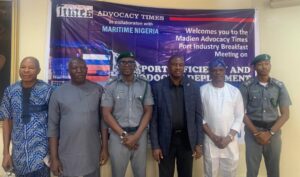
Addressing the issue of network disruption that has been a major cause of concern with previous platforms, Hussain disclosed that the Apapa Port Command as well as others have put in place three different fiber optics internet connection as contingency plan, that would enable them quickly switch to another network in case anyone fails, eliminating unnecessary delays.
He said the platform has also enhanced collaboration with other sister agencies like SON, NAFDAC and NDLEA, all now integrated into the system. Hussain pointed out that as Nigeria positions itself for greater participation in global trade, innovations like B’Odogwu remain central to unlocking the full economic potential of its ports.
Speaking earlier, the Apapa Port Command’s Public Relations Officer, Tunde Ayagbalo stressed that the NCS has prioritised addressing all the teething issues being experienced with the B’Odogwu platform as quickly as possible, anchored on regular stakeholder engagement to keep them abreast of latest developments.
“B’Odogwu is a visionary initiative designed to spearhead innovative reforms and drive excellence within the Nigerian Customs Service. It seeks to modernise operation, enhance service delivery, and promote professionalism in line with global best practices.
“Customs will keep fine-tuning and improving the system to make it much more robust and ensure trade facilitation. B’Odogwu, I’m sure, will come good for Nigeria as a whole”, Ayagbalo added.
On his part, maritime expert and Publisher of JournalNG Magazine, Ismail Aniemu noted that discussions around port modernisation and initiatives like B’odogwu are timely and necessary, while calling for urgent steps to enhance port efficiency and improve the ease of doing business.
According to him, the push for technological innovation in port operations must be seen as part of a larger strategy to reposition Nigeria within the regional and global trade landscape.
He pointed out that the impacts of port inefficiencies extend beyond maritime stakeholders, reaching deep into the hinterlands of the country, affecting the daily lives of ordinary Nigerians.
As B’Odogwu capabilities continue to expand, the platform is expected to position Nigeria as a leader in digital Customs solutions across Africa, paving the way for smarter, faster, and more secure trade operations and an efficient port system.


